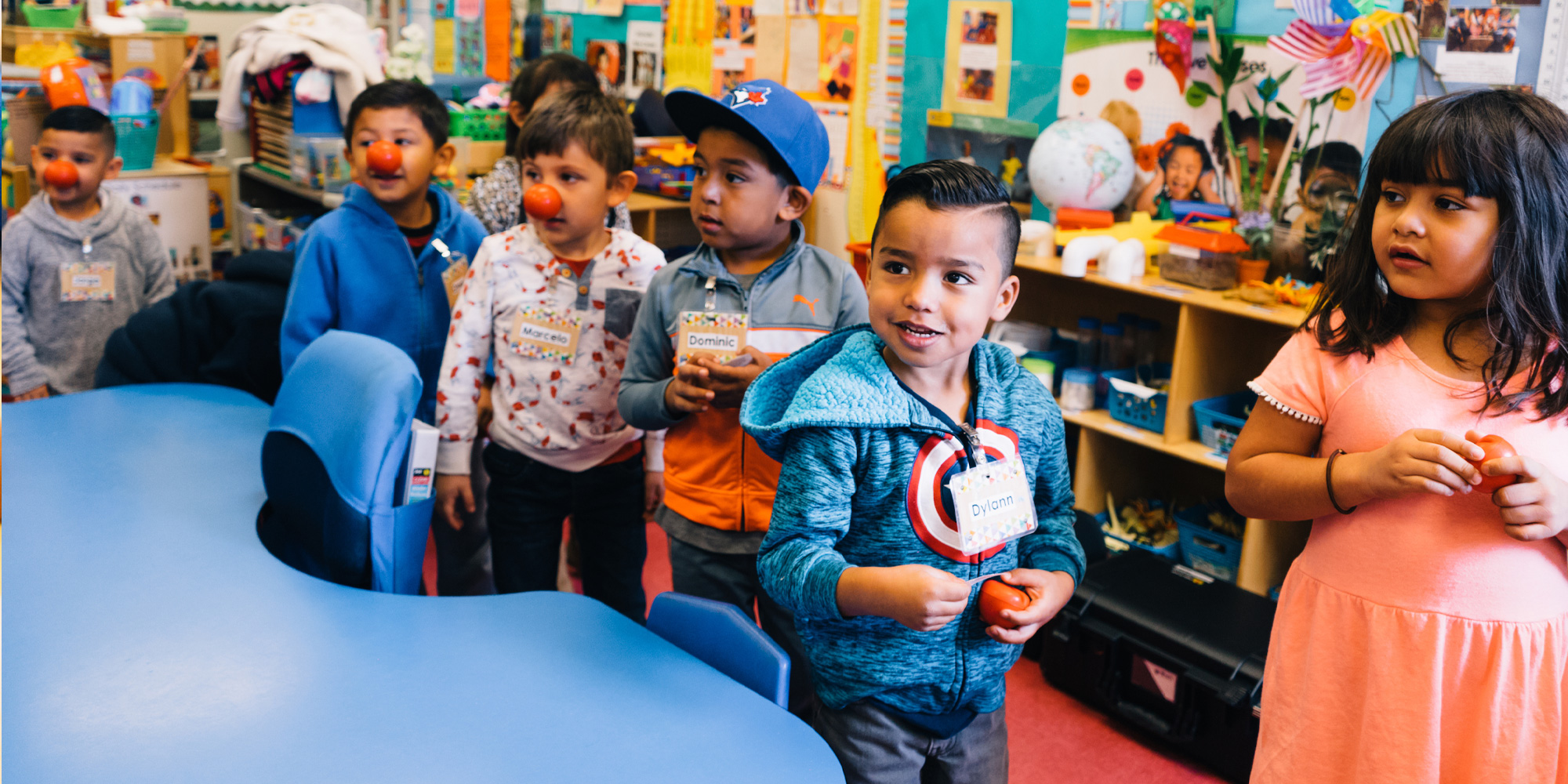Affirming and celebrating all language practices supports children’s identity, and social and emotional well being, as well as fosters their learning and development.
That’s the top message from a new issue brief by UnidosUS (formerly the National Council of La Raza) that focuses on ways that parents, family members and other adults can help multilingual preschool-age children cope with stresses and trauma of the continuing COVID-19 pandemic. “Nurturing Your Preschool-Age Multilingual Child Amid COVID-19: The Important Role of Languages” (also available in Spanish) describes the language development of multilingual children and how to nurture them through daily conversations and other interactions.
UnidosUS, the nationwide civil rights and advocacy organization, “empowers Latinos to define and achieve their own American Dream.” It pushes for economic, educational and social goals that advance prosperity and achievement for Latinos, and its network of 285 community-based affiliates around the country amplifies the voices of a diverse array of Americans.
I spoke to Robert Stechuk, Ph.D., director of Early Childhood Education Programs, who coauthored the paper with Ingrid T. Colón, Ed.D., Education Research Program manager, about how persistent misconceptions have exacerbated the stress and trauma faced by families during this challenging period.
One of those myths is that children’s home languages interfere with their academic success. For generations, Latino parents have been told to stop speaking Spanish at home if they want to support their children’s achievement. A definitive 2017 study from the National Academy of Science (see sidebar) demonstrates that children have the capacity to be multilingual and should not give up their home language to learn English.
Dr. Stechuk says the research shows that a child’s first language is part of a child’s identity and a resource for developing a second or third language. Instead of suppressing Spanish—or whichever language(s) a child learns first—parents should be encouraged to nurture them, using them as a springboard for self-expression, thinking and early literacy.
Focusing on multilingual three-to-five-year-olds, the issue brief notes the following common behaviors:
- Repeating phrases heard from adults and even imitating their tone, pitch, phrasing and pronunciation
- Engaging in “active recall,” as the child reconsiders and rethinks past experiences
- Using language to connect pieces of information. For example, the weather outside and the appropriate clothing to wear
The National Academies of Sciences, Engineering and Medicine: “Promoting the Educational Success of Children and Youth Learning English: Promising Futures” (2017)
The issue brief recommends that adults speak in whichever languages they are most comfortable with and “acknowledge and affirm your child’s use of all of the language features they have in their linguistic repertoire to make connections, communicate in different contexts and with all the people in their lives.” This means embracing all language practices, an especially crucial perspective during the pandemic, which is having such a devastating effect on children that, in the words of a BBC report quoted by the authors, “the fallout may follow them for the rest of their lives.”
The UnidosUS affiliate Gads Hill Center enrolls several thousand children in Chicago’s poorest neighborhoods. The program reports that nearly a quarter of their parents have contracted COVID-19, while more than half have had their hours of employment reduced. Indeed, the pandemic has had a disproportionate impact on immigrant families. An especially distressing investigation found Hispanic immigrants of working age are over 11 times more likely to die of COVID-19 than U.S.-born men and women who are not Hispanic. Researchers will be exploring the adverse childhood experiences (ACEs) stemming from this period for years to come, but already we know that many immigrants lack access to primary care, health insurance and the supports necessary to take care of themselves. Undocumented immigrants face an even more severe health crisis.
At the same time, Dr. Stechuk says that the pandemic has increased awareness of the resilience of foreign and U.S.-born Latino communities and has highlighted the strengths of the affiliate’s ECE programs. “The stories are so inspiring,” he says, citing programs for Latino families that serve migrant farm workers that include home visits and YouTube videos, Zoom-based writing workshops for children and online cooking classes for families held as collaborations between programs and area restaurants. He also cites the range of multilingual resources available for promoting and sustaining culturally responsive literacy. These can be books and reading materials, and videos, TV shows and street signs that can also promote language development.
“The challenges are severe,” he acknowledges, “but as the report makes clear, parents, family members and key adults can affirm and celebrate children’s multilingual development, giving them the foundation to grow up happy, confident and whole.”

Mark Swartz
Mark Swartz writes about efforts to improve early care and education as well as developments in the U.S. care economy. He lives in Maryland.



